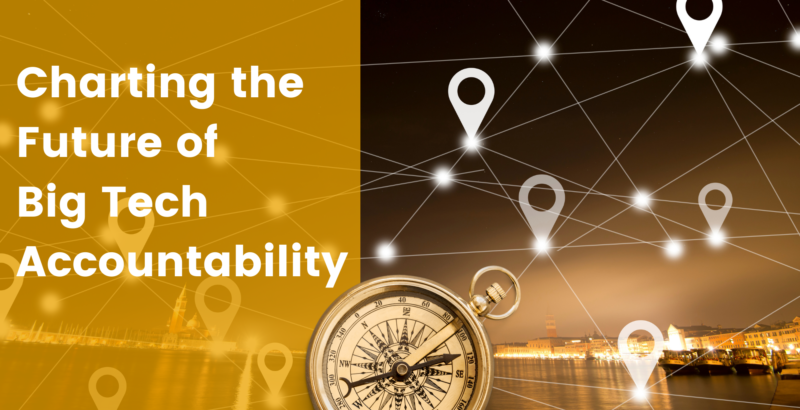Not-So-Gentle Reminder:
The Big Tech Scorecard Launches Next Week!
Next Wednesday, we release the 2022 Big Tech Scorecard, RDR’s ranking of the world’s most powerful digital platforms on their commitments to respect users’ fundamental rights. Set a reminder for April 27 to visit rankingdigitalrights.org and see which Big Tech company tops this year’s list, which ones improved the most, and which ones are bringing up the rear.
Same as last year, this year’s ranking includes a summary of our key findings and homes in on critical policy problem areas, like a lack of human rights due diligence, inadequate transparency about how companies enforce their own policies, and the black box of algorithms and targeted advertising. We also identify opportunities for hope and action that can help us chart a course for achieving more accountability from Big Tech. See below!

RSVP to Join the Conversation about the Future of Big Tech Accountability on May 4
A week after the launch of the Big Tech Scorecard, we will host a panel of superstars to discuss and debate what the future of Big Tech accountability may hold. We will look at a range of issues, including:
- The state of play in the U.S. and the EU when it comes to checking the power of Big Tech through regulation;
- The impact of ESG investors and activist shareholders as they pressure companies to connect human rights to material risks; and
- Strategies for getting Big Tech executives to not just listen but also act on policies that better protect our privacy, free expression, and other fundamental rights.
Joining the conversation are:
- Sarah Couturier-Tanoh, Corporate Engagement & Advocacy Manager, SHARE
- Jesse Lehrich, Co-Founder, Accountable Tech
- Chris Lewis, President & CEO, Public Knowledge
- Katarzyna Szymielewicz, President, Panoptykon Foundation
- Sophie Zhang, Facebook whistleblower and data scientist
RDR’s director, Jessica Dheere, will kick the discussion off with highlights from the 2022 Big Tech Scorecard, and our policy director, Nathalie Maréchal will moderate.
To Fix the Internet, Fix Ad Tech First
Among the recommendations of our It’s the Business Model reports was for lawmakers to mandate a universal, publicly accessible database of advertisements as a means of auditing companies’ compliance with privacy and civil rights laws when they engage in ad targeting.
In a new companion essay to this year’s Big Tech Scorecard, RDR Policy DIrector Nathalie Maréchal takes this recommendation one step farther, asserting that to govern the internet without compromising free speech, policymakers must focus on regulating online ads. “The enduring role of online advertising in our media environments, and in our societies at large,” she writes, “makes it all the more important that we govern it in the public interest.”
Maréchal offers a prescription for fixing online advertising—and makes a case for how this could help solve some of the problems with unpaid online content, as well.
What Does a Model Ad Policy Look Like?
You can find out by attending the Aspen Tech Policy Hub’s Information Disorder virtual pitch event. RDR, along with three other semifinalists, will compete for a $75,000 grand prize with our project Treating Information Disorder by Making Online Ads Accountable, for which we drafted new ad-tech standards and model policies that we’d like to see become the norm.
Watch live online on Tuesday, May 3 from 1:30 – 3:00 p.m. ET.
Support Ranking Digital Rights!
If you’re reading this, you probably know all too well how tech companies wield unprecedented power in the digital age. RDR helps hold them accountable for their obligations to protect and respect their users’ rights.
As a nonprofit initiative that receives no corporate funding, we need your support. Do your part to help keep tech power in check and make a donation. Thank you!




